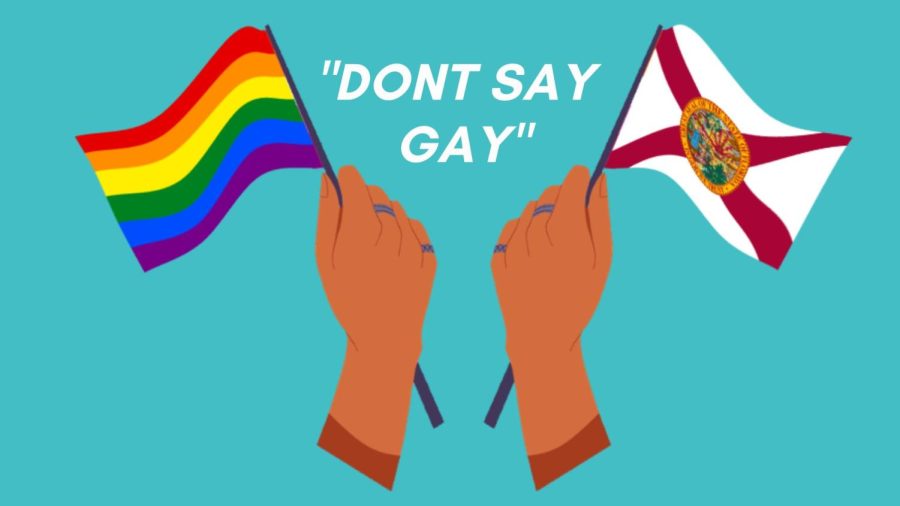“Don’t say gay” bill proposed through Florida legislature
Seventeen LGBTQ bills passed into law in 2021, labeling it as the “worst year for anti-LGBTQ legislation” by equal rights organizations. These organizations aim at laws such as the “no promo homo” laws existing in Alabama, Louisiana, Mississippi, Oklahoma, South Carolina and Texas as they do with the “Don’t Say Gay” bill. LGBTQ legislature becomes increasingly more common in statehouses meetings as communities take a stand across the country.
February 17, 2022
The Florida committee of education passed a controversial bill on February 8 that prohibits topics viewed as not “age-appropriate” or “developmentally appropriate” for primary grade levels. These topics stated in the bill highlighted sexual orientation and gender identity. The bill received poor reactions among LGBTQ communities and parents.
LGBTQ leaders and communities voiced their concerns saying that it will silence important LGBTQ contributions to history and culture such as the Stonewall riots, Obergefell v. Hodges and Bostock v. Clayton County. The Trevor Project reported that queer youth who learned about LGBTQ issues or people in school recorded a 23% drop in suicidal ideation in the past year. Other LGBTQ organizations compare the “Don’t Say Gay” bill to the past “no promo homo” laws from 1980-190’s. These laws forbid schools from teaching LGBTQ issues or require schools to portray LGBTQ people in a negative light.
“They [LGBTQ students] will feel attacked by this bill. Having a sexual orientation and gender identity should be allowed for anyone. Forcing someone to not be who they are is disrespectful. If students can’t identify themselves as who they want, they will feel misplaced and wronged. Not only that, the bill can lead to many students hating themselves and others. It can lead to bullying because it’s not part of the ‘normal’ or it can cause depression,” sophomore Melissa Mayorga said.
Representative Joe Harding, who introduced the bill, expressed during a committee meeting that the bill exists to give parents more protection in regards to how to raise their children. The bill, also named the “Parental Rights in Education” as it asserts more parental presence in public schools, encourages parents to sue school districts that do not comply with the legislation.
“We’ve seen instances of students being told by different folks in school, ‘Oh, don’t worry. Don’t pick your gender yet. Do all this other stuff.’ They won’t tell the parents about these discussions that are happening, which is entirely inappropriate. Schools need to be teaching kids to read, to write. They need to teach them science, history,” Florida governor Ron DeSantis said.
The bill will proceed through two more committee meetings in the senate with the Judiciary committee meeting scheduled for Thursday, February 17 before it can take effect. The bill would take effect July 1 and all school district plans would change by June 2023 if the bill turns into law.




